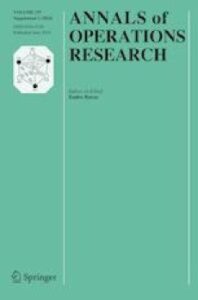A journal has retracted an entire special issue over concerns the guest-edited papers underwent a “compromised” peer review process.
In a supplement to Volume 337 Issue 1 of Annals of Operations Research, 23 papers were retracted with the same statement:
The Editor-in-Chief and the publisher have retracted this article. The article was submitted to be part of a guest-edited issue. An investigation by the publisher found a number of articles, including this one, with a number of concerns, including but not limited to compromised editorial handling and peer review process, inappropriate or irrelevant references or not being in scope of the journal or guest-edited issue. Based on the investigation’s findings the Editor-in-Chief therefore no longer has confidence in the results and conclusions of this article.
The articles in the guest-edited issue, Prescriptive Analytics Using Machine Learning and Mathematical Programming for Sustainable Operations Research, were published between June 2022 and October 2023.
Continue reading ‘We authors paid a heavy price’: Journal retracts all 23 articles in special issue








